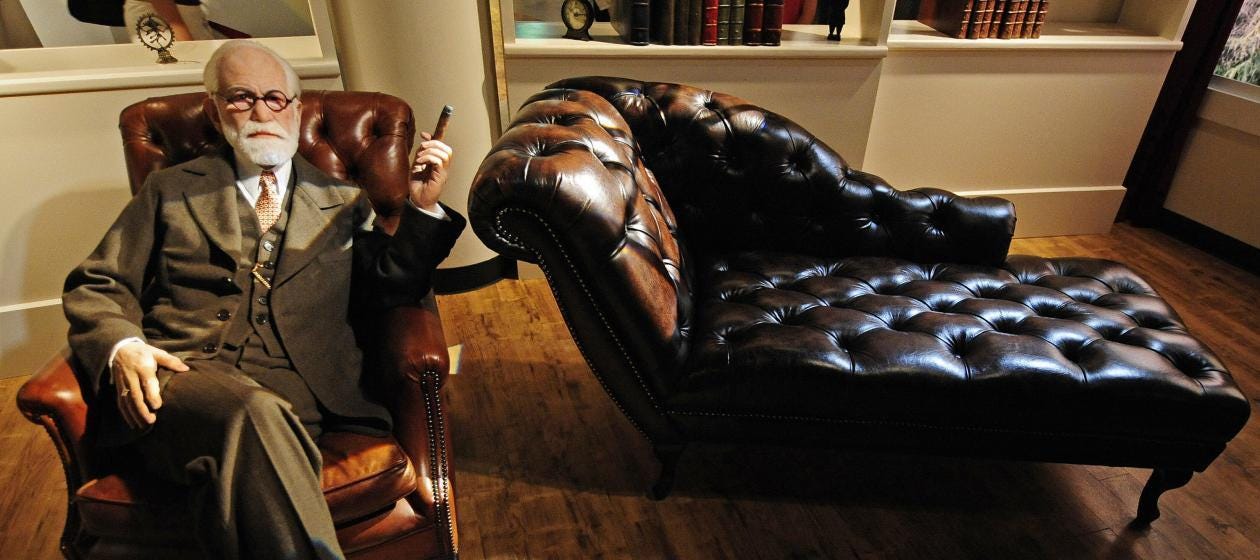How to Find a Therapist
Psychologist and Well…Adjusting guest expert Patricia Simko shares tips on finding the right mental health professional
Today, young people are graduating college with adult-sized debt, but child-sized life skills. As they enter adulthood, they need practical advice about boundaries, salaries, health insurance, and what-the-heck-is-a-high-yield-savings-account-anyway?
Enter, my podcast Well…Adjusting.
Well…Adjusting, an editaudio original podcast, is a comedic, self-help chat show hosted by me! In each episode, I interview a person having a problem in the workplace, with their finances, or with life planning, and let me tell you, they get into it.
In a recent episode titled, “When It’s Time To Get Help,” Aurora asks the age-old question: do I need therapy or can I fix myself? We go in-depth about Aurora’s experience of being a child of immigrants, her fears of a therapist gaslighting her, and how to tackle the overwhelming process of finding the right mental health professional.
What’s lovely about Well…Adjusting, besides the fun conversations and relevant topics, is that the episodes end with what we like to call, real, accredited advice from folks in the field.
Today, I wanted to throw a spotlight on “Expert of the Day,” Patricia Simko. Patricia is a kick-ass (my words, not her official title) psychologist in New York City.
Here is some wisdom from Patrica about getting help and how to find a therapist:
I think there are lots of ways to find a good therapist, especially now that you can do therapy on zoom and you can get therapists from any place in the world if you want. And good therapists too.
But, I still think that a personal reference is the primary way that people can find good therapy. A lot of people come to me because other people have recommended me. And, that’s sweet, in a way because if someone's friend recommended me, that means that person is friends with someone else that I've already formed a good relationship with. Chances are, there are going to be some similarities in their relationship.
If you're in a part of the world that's not New York, LA, or someplace where lots of people are in therapy, you can find a therapist in virtually everything you read. If you read any kind of self-help books, lots of them are by people who are therapists.
There are also places where therapists can advertise. I know a lot of the younger therapists who I supervise, advertise in psychology today, for example. Many of these therapists offer something like a half-hour, free consultation, so you can see what the feel is like.
I think you want a sense of how it feels to you. If you call someone and they seem like a decent person or you like the sound of their voice or they say something that's funny and humor is important to you, so you share to laugh–anything that feels like, “Well, if this were somebody I was meeting for coffee, just to chat about stuff, I would go again.” That's a good sign. If they feel like a friendly person. They feel like a person who strikes you as intelligent, who strikes you as empathic. Those are all really validating criteria.
Parting Thoughts From Patricia:
Ultimately, I would like people to realize that they create their own lives. You have both the responsibility and the privilege/right to make your own choices and to learn your own lessons. Therapy may or may not be for you. That is ultimately up to you to decide. There are many ways to feel better and to heal. But if at the end of the day, you are not happy, not satisfied with where you are at, feeling down, blue, depressed, or hopeless at a deep level, you might consider therapy as a way of changing the mindset, opening new options, revealing deeper truths within, and forming a unique relationship with someone who can accompany you and help you on this journey.
Want to hear more of Aurora’s story and Patricia’s advice?
Listen to Well…Adjusting now. It’s available at https://pod.link/welladjusting or on your favorite podcast platform.




